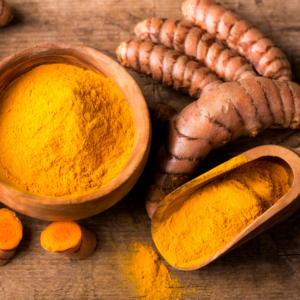What is Antioxidant Activity?
Antioxidant activity refers to the ability of certain substances to neutralize harmful molecules called free radicals, which can cause oxidative damage to cells. Oxidative damage is linked to various health issues, including inflammation, aging, and chronic diseases like cancer and heart disease. Antioxidants help maintain the balance between free radicals and antioxidants in the body, thus protecting against oxidative stress and its detrimental effects.

| Did you know – Turmeric contains curcumin, a potent antioxidant compound.
Is Turmeric Really a Strong Antioxidant?
Yes, turmeric, particularly its active compound curcumin, is renowned for its potent antioxidant properties. Curcumin exhibits strong antioxidant activity by scavenging free radicals and reducing oxidative stress in the body. Numerous studies have demonstrated the antioxidant prowess of turmeric, making it a valuable natural remedy for combating oxidative damage and promoting overall health.
| Did you know – Curcumin scavenges free radicals, reducing oxidative stress.
Benefits of Turmeric’s Antioxidant Effect
The antioxidant effect of turmeric offers a multitude of benefits for various organ systems in the body. Some of the key benefits include:
- Cardiovascular System: Turmeric’s antioxidant properties may help protect against heart disease by reducing oxidative stress and inflammation in the cardiovascular system.
- Brain Health: The antioxidant activity of turmeric has been linked to improved cognitive function and may help prevent neurodegenerative diseases like Alzheimer’s.
- Liver Function: Turmeric’s antioxidants support liver health by protecting against oxidative damage and inflammation, thus promoting detoxification and optimal liver function.
- Immune System: Antioxidants in turmeric bolster the immune system, enhancing its ability to defend against infections and diseases.
- Skin Health: Turmeric’s antioxidant effects may help combat skin aging and protect against UV-induced damage, promoting healthy and youthful-looking skin.
- Eye Health: The antioxidant effect of turmeric may help protect against age-related macular degeneration and other eye conditions by reducing oxidative damage to the retina.
- Joint Health: Turmeric’s antioxidants can help alleviate inflammation and oxidative stress in joints, making it beneficial for individuals with arthritis and other inflammatory joint conditions.
- Digestive Health: By reducing oxidative stress and inflammation in the digestive tract, turmeric’s antioxidants support gut health and may help alleviate symptoms of inflammatory bowel diseases like Crohn’s disease and ulcerative colitis.
- Metabolic Health: Turmeric’s antioxidant properties may aid in regulating blood sugar levels and lipid metabolism, thus promoting metabolic health and reducing the risk of diabetes and metabolic syndrome.
- Respiratory Health: Turmeric’s antioxidants may help protect lung tissue from oxidative damage caused by environmental pollutants and toxins, thereby supporting respiratory health and reducing the risk of respiratory diseases.
- Mood and Stress Management: Antioxidants in turmeric may have neuroprotective effects, helping to combat oxidative stress in the brain and promote mental well-being. This can contribute to mood stability and stress management.
- Exercise Performance: Turmeric’s antioxidants may help reduce exercise-induced oxidative stress and inflammation, thereby enhancing exercise performance and recovery.

| Did you know – Turmeric’s antioxidants protect cells from damage and inflammation.
Researches on Antioxidant Effect of Turmeric
Numerous studies have investigated the antioxidant effect of turmeric and its potential health benefits. These studies have demonstrated:
- Curcumin’s ability to scavenge various types of free radicals and reduce oxidative stress markers in cells and tissues.
- Turmeric’s efficacy in protecting against oxidative damage in organs such as the liver, kidneys, brain, and heart.
- The synergistic effects of curcumin with other antioxidants, enhancing overall antioxidant capacity in the body.

| Did you know –Research suggests turmeric may help prevent chronic diseases.
Conclusion
In conclusion, turmeric’s antioxidant effect is indeed potent and offers a wide range of health benefits across multiple organ systems. From cardiovascular and brain health to liver function and immune support, turmeric’s antioxidants play a crucial role in maintaining overall well-being. Continued research into turmeric’s antioxidant mechanisms and clinical applications is essential for unlocking its full therapeutic potential and promoting optimal health.

| Did you know –Adding turmeric to your diet promotes overall health and wellness.
Note: While turmeric is generally safe for most people when consumed in moderation as a spice or dietary supplement, certain individuals should exercise caution or avoid it altogether. People who are allergic to turmeric or its components should avoid its consumption. Additionally, individuals with gallbladder problems, kidney stones, or those taking blood-thinning medications should consult a healthcare professional before using turmeric supplements, as it may interact with certain medications or exacerbate existing conditions. Pregnant and breastfeeding women should also consult their healthcare provider before using turmeric supplements. As with any dietary supplement, it’s essential to use turmeric responsibly and seek medical advice if you have any concerns or underlying health conditions.
Read More: Ready to dive deeper into the world of natural remedies? Check out our latest article – Unlocking the Healing Powers of Turmeric: Repairing Liver Health






